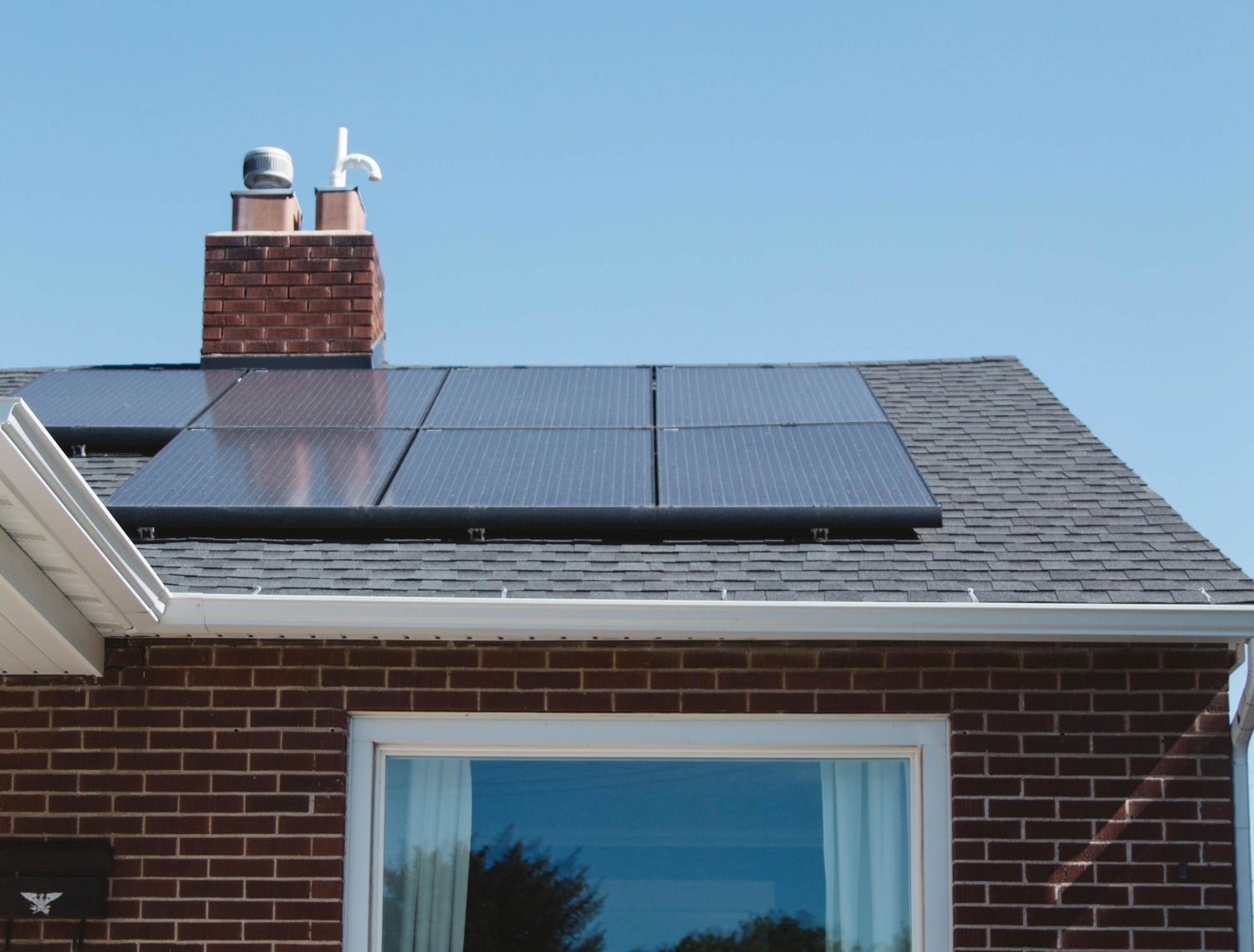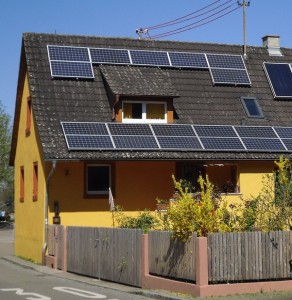The Pros and Cons of Converting Your Home to Solar Power
What You Need to Know about Solar When Converting Your Home
The main benefits of going solar are the long-term savings and environmental impact. Solar panels can be installed on your roof to generate free electricity, which will save you money in the long term. Solar panels also help the environment by reducing greenhouse gas emissions, as well as other pollutants like carbon dioxide and particulate matter.
Can You Run an Entire House on Solar Power?
There are a lot of factors to consider when deciding if solar power is the right choice for you and your home. A full solar panel installation can be designed by an installer, but it will also require additional equipment that must be purchased and installed separately.
There are many ways to go solar, so it’s best to consult with a professional. Depending on your needs and location, they can help you choose the best system for your home. Going completely off-grid requires a considerable financial and time investment.
Will Going Solar Affect Your Home’s Value?
There is a lot of debate about whether or not solar panels actually add value to a home. Some people believe that they are an upgrade, while others think that they are more of a liability.
The good news is that there is some evidence to suggest that solar homes do have a higher resale value. In one study, it was found that homes with solar panels sold for 17% more than those without them.
It’s important to note, however, that this isn’t always the case. Solar panels don’t necessarily guarantee savings- in fact, depending on your location and how much sun exposure your home gets, you may not see any financial benefit at all from having them installed.
However, with the right incentives in place (such as the 26% tax break available through 2023), installing solar panels can be a wise decision both environmentally and financially.
Homeowners also have the option of purchasing or leasing solar panels. Leasing usually comes with certain guarantees regarding production and savings, making it a particularly attractive option for many homeowners.

What are the pros and cons of converting your home to solar power?
Pros
There are several pros to installing solar panels in your home. For one, solar power has social benefits – it helps reduce our reliance on fossil fuels and lowers our carbon footprint. Additionally, in some cases, you may be eligible for tax breaks for having solar panels installed. And finally, if you produce more energy than you use, you can sell the excess back to the grid!
However, there are also some economic costs to installing solar panels. For example, you’ll have to pay installation and maintenance fees, as well as replace certain components every few years if you use solar power at home. Additionally, rooftop solar panels may not be the best option for everyone; they might not fit on your roof or be the most efficient way to capture sunlight depending on your location.
Overall, though, solar energy provides clear benefits to homeowners and is a smart investment for most people.
What are the best residential solar panels for your home?
The best residential solar panels for your home are solar panels that you can install on your roof and use to generate electricity. The best residential solar panels have warranties, a high-efficiency rate, and a long lifespan.
Solar Panel Types

There are three types of solar panels: monocrystalline, polycrystalline, and amorphous. Monocrystalline panels are the most expensive but they also produce more power than other types of solar panels. Polycrystalline panels are less expensive than monocrystalline panels but they don’t produce as much power. Amorphous panels are the least expensive and they also produce less power than other types of solar panels.
- Monocrystalline solar panels are made from a single crystal of silicon. Because they are made from a single crystal, these panels produce more power than other types of solar panels.
- Polycrystalline solar panels are made from many small crystals of silicon. These panels produce less power than monocrystalline solar panels but they are much cheaper.
- Amorphous solar panels are made from a thin film of silicon. They produce less power than polycrystalline solar panels but they are the least expensive and take up less space than other types of solar panels.
What are the costs of converting your home to solar power?
There is a lot of upfront cost for converting to solar power. The average upfront costs are about $20,498. That includes the cost of solar panels, the cost of labor, electrical work, and permits. The good news is that after you convert to solar power you can save money on your electricity bill. You can also sell excess power to your local utility company. The average annual savings are about $1,600 per year.
How many solar panels do you need to power a home?
The answer to the question would depend on how much energy your home uses and what type of solar panels you have. The average home in the U.S needs between 20 and 24 solar panels to cover its electric bills.
The number of panels needed to power a home depends on the size of your home. It also depends on whether you are using regular solar panels or thin-film solar panels, which may need less space.
Steps to Converting a Home to Solar Power
The steps to converting a home to solar power are as follows:

Calculate Your Energy Usage
In order to calculate how much energy your home uses, you’ll need to know the wattage of each appliance. This information can usually be found on the appliance’s Energy Guide Label. Once you have this data, add up all of the watts used by appliances in an hour and multiply it by 24 to get a rough estimate of your daily usage. This might help determine if solar power is enough to cover all of your needs.
Consider Your Location
One of the first things you’ll need to consider when converting your home to solar power is the location. Sunlight is key, so you’ll want to find a spot that gets plenty of direct sun exposure. Tall trees or buildings can block sunlight and make it hard for panels to catch rays. This can influence the amount of energy your system produces.
Work with a Solar Installer
When you’re ready to convert your home to solar power, it’s important to work with a qualified installer. Solar panel installers help design the system so that it meets your needs and complies with solar regulations. They also help you work through financing options for the installation, making it more affordable.
The professionals can inspect your home when developing plans to make sure their designs achieve optimum results. Additionally, they can give you advice on what size system will work best for your needs and budget.
Solar panels need sunlight to generate power, so they won’t function at night or on a cloudy day. However, you can have your installer set up solar batteries for you to store excess energy during outages and non-productive days. This way, you’ll always have access to some of that clean renewable energy!
Frequently asked questions
Is a DIY solar installation a good idea?
There are a lot of factors to consider when deciding whether or not to DIY solar installation. First and foremost, it’s important to remember that these installations are a risk. Only the most experienced installers should attempt them, as you run the risk of voiding out warranties and not qualifying for certain incentives.
That said, if you’re comfortable with taking on that risk, there may be some cost savings to be had by doing the installation yourself. Keep in mind, though, that you’ll need to factor in installation costs and your property’s solar potential. You can get an idea of what those might look like using DIY kits as a reference point; just be sure to compare prices among different vendors before making a decision.
Do You Really Save Money With Solar Panels?
Solar panels are a popular product for home renovation, with the goal of saving money on electricity. How much you save depends on several factors, such as: The amount of sunlight you get per day. How big your roof is. Where the electricity rates are.
Even if solar energy is not necessarily cheaper than traditional sources of power, it does have other benefits, such as being environmentally friendly and reducing our dependence on foreign oil.
What size solar panel system do I need?
The size of a solar panel system depends on the amount of power you require and how often your panels will be used. A general rule is that a 2 kW solar panel system will typically be able to power a household.
How do you find the right solar installer?
Getting multiple quotes is the best way to find a good solar installer, as well as find the best price. A reliable local company will give you personalized service, which is worth paying more for over 25 years of use. You should look for a company that employs its own installation crew and has been in business for five or more years.
Will solar impact the ability to sell my home?
Many homeowners are interested in installing solar energy systems in their homes. Solar offers a number of benefits, such as reducing your monthly energy costs and adding value to your home.
One question homeowners often ask is whether or not installing solar will impact their ability to sell the home. The answer is no—in fact, recent studies have shown that solar actually increase a home’s resale value.
How long do solar panels take to pay for themselves?
It is difficult to say how long solar panels take to pay for themselves. It depends on the type of home you live in, your locale, and other factors that influence electricity costs. Generally, solar panels take about 7-10 years to offset the cost of installation.
